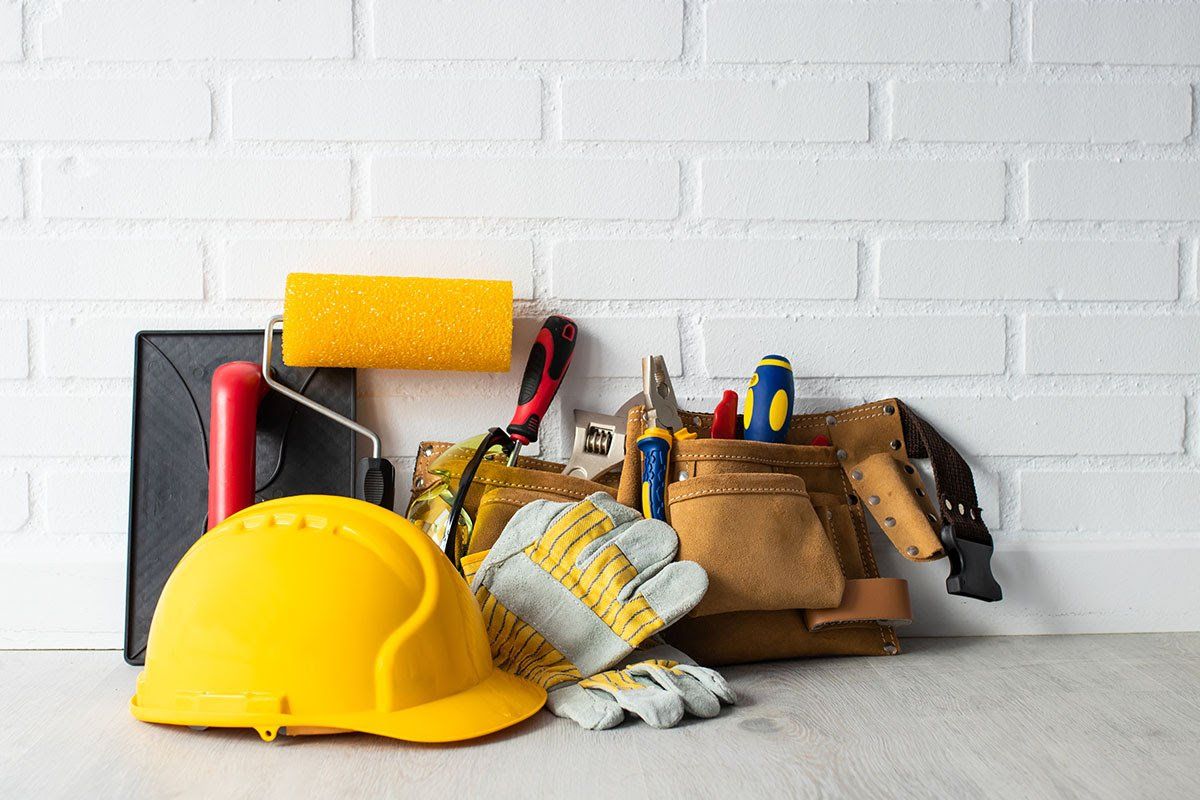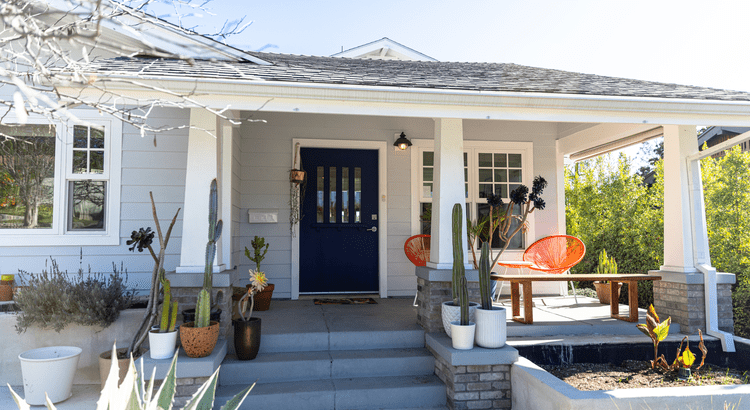Landlord's Guide to Property Maintenance

Maintaining a successful rental business often comes down to being prepared for the unexpected. You can thoroughly screen tenants, perform routine inspections, and charge competitively for rent, but these tactics won’t always guarantee success. Maintenance issues can happen at any time at any rental property and repairs can sometimes be tricky and costly. Because of this, property maintenance poses a threat to your rental income. To ensure you’re prepared, let’s dive into our landlord’s guide to property maintenance.
Move-In and Move-Out Maintenance
When one tenant leaves and another moves in, you’ll need to prepare yourself for move-in and move-out inspections, maintenance, and repairs. After a tenant moves out, the unit will need to be brought back to its original state for the next tenant to move in, especially if the prior tenant doesn’t leave the unit the way they found it. To stay organized, try out our nine step apartment turnover checklist to get your property in tip-top shape between tenancies. During the move-in and move-out process, there are a few types of maintenance tasks you should be tackling.
Basic repairs
If you haven’t found a new tenant just yet, it’s the perfect time to perform basic repair and maintenance tasks before marketing your rental. If you’ve already found a new tenant, you will be in a better position to avoid any potential vacancies that will cost you rental income. However, you’ll need to complete these basic repairs efficiently to ensure your unit is ready for move-in day.
Basic property repairs include deep cleaning the entire unit, washing windows, deodorizing carpets, checking smoke alarms and carbon monoxide detectors, and repainting where necessary.
Preventive maintenance
The move-in and move-out process is a great time to tackle preventive maintenance as well as basic repairs. This type of maintenance will help you fix small problems before they become bigger issues. Preventive maintenance may include checking the gutters, any included appliances, the septic system, the HVAC, and the chimney and fireplace (if applicable). There’s a long list to consider, but if you’re on a time crunch between tenancies, prioritize these five preventive maintenance tasks to keep your unit in good shape.
Property improvements
If your unit isn’t holding up well between tenancies, it may be time to make some improvements, repairs, and renovations to make your property durable and low maintenance. From switching the carpet to laminate flooring to replacing doors to installing easy-to-clean countertops, there are several property improvements you can make to ensure your property can hold up to long-term tenants or multiple tenant turnovers. Although renovations may cost you more upfront, these property improvements will likely save you in monthly maintenance and repair costs long term. Rental renovations can also increase the value of your investment, so you can potentially charge more for rent and increase your rental income.
Seasonal maintenance
You should be performing routine property inspections, but there are certain maintenance and repair tasks that must be done seasonally. As the leaves change, there will be specific fall maintenance tasks to tackle, and shortly after, you’ll need to focus on the colder weather tasks like winterizing your unit. These tasks include cleaning the gutters, installing window seals and extra attic and/or basement insulation, maintaining the fireplace, using a water heater blanket, and changing the air filters. And when the weather warms once again, it’ll be time to tackle your spring maintenance checklist.
DIY Maintenance and Repairs All Landlords Can Do
Because all your properties will need maintenance and repairs from time to time, it may come in handy to have some basic skills, knowledge, and tools to handle certain tasks. Not every repair should require a professional; there are a few DIY maintenance and repair tasks all landlords can learn how to do.
Leaky faucets
Faucets wear out over time, and when they do, they have a tendency to waste water, which is why fixing leaky faucets in a timely manner is so important. Our guide to leaky faucets details the process of identifying the type of faucet you have, isolating the issue, and fixing the faucet based on type. You’ll have your faucet working properly again in no time after honing your skills with our go-to guide.
Lawn and garden care
If you don’t require your tenants to maintain the lawn and garden in the lease, the task is up to you (if you don’t want to hire a professional). To keep everything green, beautiful, and eco-friendly, check out our top lawn and garden care tips for DIY landlords.
Clogged pipes
Basic plumbing should be on every landlord’s DIY list, especially since plumbing issues are so common in rental properties. There are plenty of preventive measures to take to keep clogged pipes from reoccurring, including providing tenants with proper plumbing tools, avoiding harsh drain cleaners, and treating pipes regularly to prevent clogs.
Drywall patching
Fixing a crack or even a hole in drywall may seem like a big project, but it’s quite simple and is something you can handle on your own with a few tools, like a lightweight spackle and a putty knife. Afterwards, just repaint the area and your drywall will be looking good as new for your incoming tenant.
Removing mold and mildew
Mold and mildew can become serious issues in a rental property. The first step to addressing this problem is figuring out where the moisture is coming from, which is what creates mold and mildew. Physically removing the mold may be a large task, but it should still be simple. From testing the mold for toxicity to controlling the moisture, you should be able to remove the mold and mildew in your unit without professional help.
Maintenance and Repairs That May Require Professional Help
Even if you’re the handiest landlord you know, we all have our limits. Sometimes it’s best to hire out to trustworthy contractors to handle the job. By doing so, you may even learn a thing or two from contractors about how to fix maintenance issues in the future. For certain repairs, it may even be required by law to have a professional handle the job, so check your state laws before you tackle any projects that are outside of your wheelhouse. Although there are still many repairs you can do yourself, you may want to consider hiring a professional to avoid any missteps.
HVAC servicing
You can certainly check the HVAC to ensure it’s working as a form of preventive maintenance, but when it comes to servicing the HVAC system, you may want to hire a professional. HVAC servicing may end up being a bigger project than a DIY landlord is willing to take on.
Electrical maintenance
If your rental has electrical issues, it’s probably in your best interest to hold off on any DIY repairs and wait for a professional to assist you. Electricians are in business for a reason, so avoid attempting to fix your unit’s electrical maintenance on your own.
Water damage
Water damage can stem from overflowing toilets, a leaky appliance, burst pipes, or a natural disaster and can end up causing severe damage and mold growth. Although you can step in and stop the flow of water in most cases by turning off the main water supply line, there’s not much else you can do unless you have direct experience dealing with water damage. Do yourself, your tenant, and your rental a favor by calling in a professional contractor to help.
Roof maintenance and replacement
On average, roofs need to be replaced every 15 to 20 years. And even if you have a brand-new roof, you may not be in the clear when it comes to maintenance and repairs. Inclement weather can damage shingles or portions of the roof even if it’s new or in good shape. If any damage has occurred or if you wish to repair an older roof, hold off on any DIY maintenance and call professional roofers to do the job.
Removing termites
Routine pest control is a great way to deter pests from invading your rental. However, if termites find their way into your unit, simple pest control spray and bait won’t do the trick. A small termite problem can potentially be handled in a DIY manner, but anything closer to a termite infestation should be handled by professionals to prevent any further damage.
How to Manage Maintenance and Repair Requests Online
By listing your property on Apartments.com, you’ll have access to a full suite of rental tools that includes software used to manage maintenance requests and communicate with tenants about repairs. Through their account, tenants can request repairs from any device and provide you with the details you’ll need. They can even include photos and videos to their online request. Whether you’re repairing the issues yourself or hiring a service professional, you can easily update tenants about scheduled repairs through the portal. Stay organized by managing maintenance for all your units through your account and keep records of past requests for future reference. You can even attach receipts, add notes to yourself, and track related expenses. Your unit(s) will always need maintenance and repairs, and with Apartments.com, you can manage everything in one place.
Common Maintenance Questions
Not all property owners and managers double as contractors, so there’s a line that needs to be drawn between DIY maintenance and professional help. But there are many other maintenance topics to cover aside from who repairs the issue. Let’s go over a few additional maintenance questions that may be weighing on your mind.
How do I find a trustworthy contractor?
A good contractor is worth every penny, and a bad contractor will cost you much more. Remember that you’re looking for more than just a helping hand; you need a contractor you can rely on. Check out our top four tips for finding and hiring a trustworthy contractor.
How long should my appliances last?
If you plan to include appliances in your rental, you want to ensure they are low maintenance and durable, which is why it’s important to do your research before purchasing appliances. Check out the average service life of various appliances, as well as our tips and tricks for purchasing and maintaining appliances in your rental. And if it comes down to it, here’s the tools you’ll need for DIY appliance repair and maintenance.
Should I charge my tenants a maintenance fee?
It’s not entirely uncommon for landlords and property managers to charge a fee for every maintenance request or repair. However, there are pros and cons to doing so. If you’re on the fence, check out the benefits of not charging a maintenance request fee or repair deductible.
Is a landlord or tenant responsible for repairs?
When it comes down to it, who is the lucky owner of the repair bill? First things first, check your lease agreement to see who is responsible for what. In general, landlords are responsible for anything that presents a safety issue or that breaks due to age or normal wear and tear. Check out our guide to learn more about what maintenance and repairs landlords and tenants are responsible for.
Share this post




